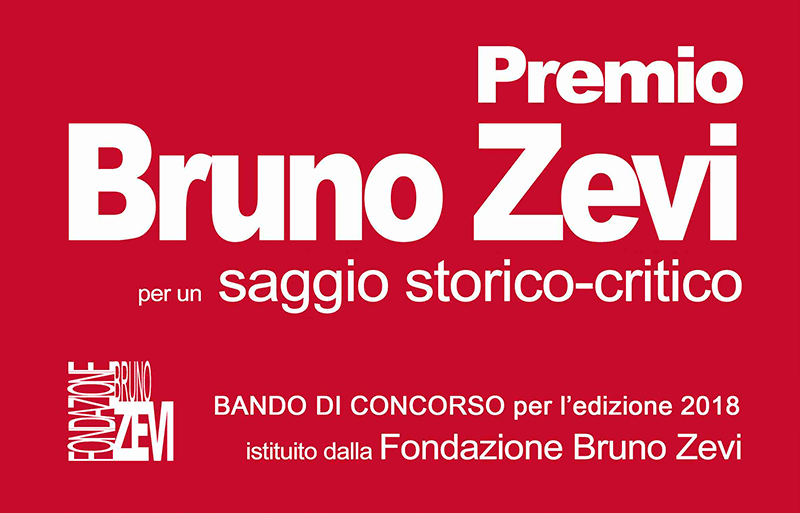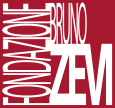Bruno Zevi Prize 2018

ANNUAL BRUNO ZEVI PRIZE 2018
FOR A HISTORICAL-CRITICAL ESSAY ON ARCHITECTURE
COMPETITION RULES for the 12th edition, 2018
Art. 1
With a view to developing and disseminating the teachings of Bruno Zevi and his method of critical and historical inquiry, the Bruno Zevi Foundation annually holds an international competition to award a prize for an historical-critical essay offering an original analysis of an architectural work, theme or architect of the past or present.
The competition is divided into five sections corresponding with the following themes:
– the key role of space in architecture
– the ancient sources of modern language
– history as a methodology of architectural practice
– the modern language of architecture
– landscape and the zero-degree language of architecture.
Art. 2
The competition is open to PhD researchers who have obtained the title between 2008 and 2018.
Art. 3
Essays published previously are not eligible.
Art. 4
Essays may be submitted in Italian, English and French. Essays written in Italian must be accompanied by an English version.
Art. 5
The prize consists of the essay’s publication by the Bruno Zevi Foundation. The author of the winning essay will be invited to give a lecture at a conference in Rome at an award ceremony.
Art. 6
The prize is awarded annually.
Art. 7
The Jury is renewed every year. The members of this year’s jury are:
Roberto Dulio, Marzia Marandola, Lucy Maulsby, David Rifkind, Elena Tinacci.
Art. 8
Those wishing to enter this year’s competition are required to provide the Bruno Zevi Foundation with the following no later than September 10th, 2018, as proved by a postage stamp on the envelope.
a) completed application form including personal data, details of the section in which the essay is entered and the title of the essay [see enclosure] b) the complete text of the essay, of a maximum of 120,000 keystrokes including notes, plus illustrations on CD or USB flash drive as well as two printed copies.
Digital copies must show the title of the essay but not the author’s name. Essays must also be submitted via email;
c) including an essay abstract of a maximum of 1500 keystrokes.
Art. 9
Essays entered in the competition which are not awarded the prize will not be returned. Copies will be catalogued and filed in a specific section of the Bruno Zevi Foundation Library for the disposal of its’users.
Art. 10
The winner of the prize will be notified via email, which will also be made public together with the name of the recipient on the Foundation’s website: www.fondazionebrunozevi.it.
Rome, May 24th, 2018
Adachiara Zevi
President of the Bruno Zevi Foundation

 Italiano
Italiano